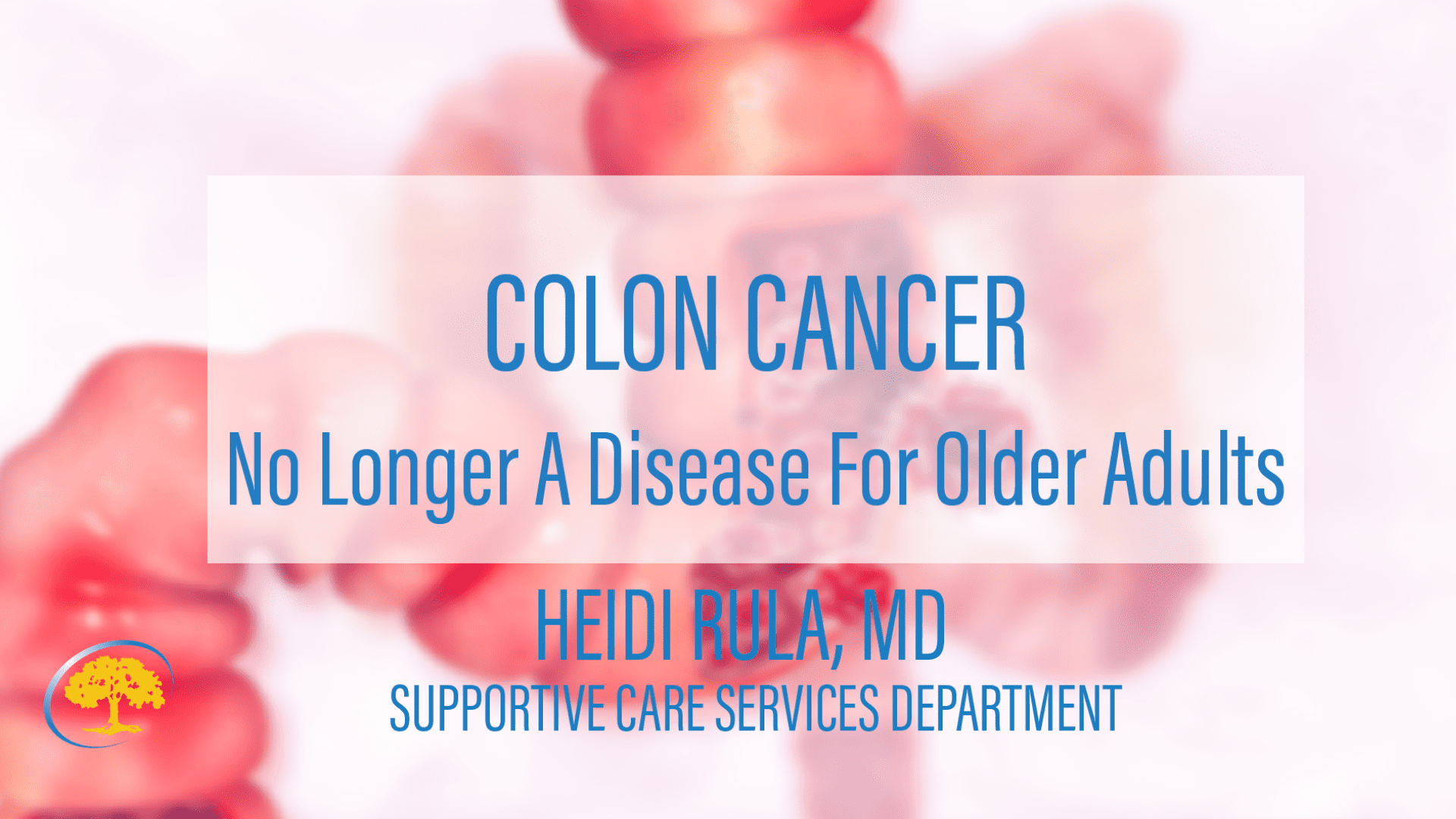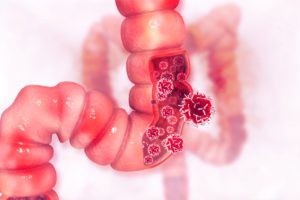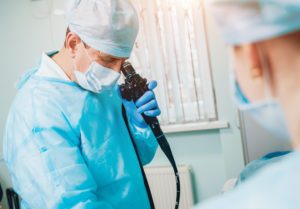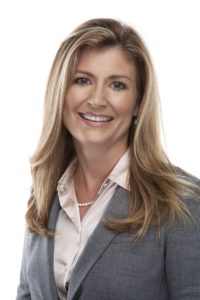
Posted 4 years ago
Colon Cancer: No Longer a Disease of Older Adults
Colon cancer is a disease most young adults feel they will not need to worry about until they get older and certainly not something they need to concern themselves within their 20’s, 30’s or 40’s. But a worrisome trend in colon cancer rates is proving this theory wrong. Since the 1990s, the rate of colon cancer in people younger than 50 has doubled.
Not only are more young adults being diagnosed with colon cancer, but we are seeing more young adults die from this cancer. The world was shocked this year when we lost Chadwick Boseman, the famous actor who starred in the “Black Panther” movie. He was in his late 30’s when he was diagnosed with advanced colon cancer and died from the disease at the age of 43.
Just in the last year, in my own practice, I have seen a number of patients with advanced colon cancer in their 20’s and 30’s. This trend has been hard for experts to understand because, over the last 30 years, the rate of colon cancer in older adults has seen a significant drop which has been explained by more people getting screening colonoscopies and lower rates of smoking.
Although experts don’t know exactly why we are seeing rising rates of early-onset colon cancer, they do know some of the factors that increase a person’s risk of developing colon cancer – obesity, smoking, and physical inactivity.
With obesity becoming an epidemic in the US, it certainly may be contributing to some of the increase in colon cancer rates we are seeing in young adults. Researchers are also focusing on three other associated factors – diet, gut bacteria, and inflammation, that may explain the rising rates. Our diet is something that not only influences the development of obesity but also plays a strong role in the balance of bacteria in our gut and the level of inflammation in the body.

The S.A.D. has been linked to other chronic diseases, like diabetes, heart disease, and dementia and it is now being linked to colon cancer.
Prevention through Diet:
One of the best ways to lower the risk of developing colon cancer is to eat a healthier diet.
- The Mediterranean diet, which focuses on eating more fruits and vegetables, using olive oil as the preferred oil, limiting red/processed meats and added sugars, is the recommended diet for digestive health. This diet can help build a healthier balance of bacteria in your gut as well as lower rates of inflammation. Studies have shown that just a few weeks of eating more fruits and vegetables and lowering sugar intake can start to produce healthy changes in gut bacteria levels.
- Another way to improve bacterial balance is to make sure you are getting at least 25-30 grams of fiber a day in your diet. Fiber is an important nutrient that can promote the growth of beneficial bacteria and minimize microbes that are associated with inflammation.
- Adding root vegetables like carrots, sweet potatoes, onions, and beets are especially helpful in feeding two beneficial groups of bacteria in the gut, Lactobacillus, and Bifidobacterium. These two groups of bacteria help prevent the overgrowth of more troublesome microbes, produce vitamins, and help and help to improve immune function. Try to get one serving of root vegetables in your diet a day.
- Cultured foods and probiotics are other ways to influence the health of bacteria in the gut. Cultured foods like yogurt, kefir, sauerkraut, miso, and tempeh bring healthy microbes to the gut to help restore balance. For those who do not like to eat these foods, consider adding a daily probiotic supplement.
 Early Detection through screening
Early Detection through screening
Early detection of precancerous polyps and cancers in the colon is a very important way to decrease colon cancer rates. In the past, screening was recommended to start at 50 years of age for the average risk adult but with rising rates of colon cancer, the American Cancer Society now recommends we start screening exams at 45 years of age.
Screening can be done with either stool-based testing that looks for the presence of blood or DNA changes or from visualization exams like a colonoscopy and sigmoidoscopy. Check with your doctor to see when you should start to
Understand the Signs of Colon Cancer 
It is important to understand the signs and symptoms of colon cancer to be sure to seek medical attention if you are experiencing any of them. Signs and symptoms of colon cancer include the presence of blood in the stool, change in bowel habits that could include constipation and diarrhea, persistent abdominal comfort, unexplained weight loss, and or fatigue.
Early diagnosis can save lives by detecting the precancer/cancer in an early stage where the disease can be very curable. The rising rate of colon cancer in young adults s highlights how important it is to adopt a healthy lifestyle early on in life.
Achieving a healthy body weight, being physically active, and eating healthy foods are important ways to help lower your risk of colon cancer, as well as many other chronic illnesses. A young adult should be aware of the signs and symptoms of colon cancer and get any worrisome changes checked out by their healthcare provider.
About Heidi Rula, M.D.
Medical Director of the Supportive Care Services Department
Dr. Heidi Rula joined Ironwood in 2018 to launch the Integrative Oncology program. She is board certified in family medicine and fellowship-trained in Integrative Medicine. Dr. Rula has been a practicing physician in the Phoenix area for approximately 20 years and has been recognized by her colleagues as one of Phoenix’s “Top Doctors” on multiple occasions.
Dr. Rula has played a key role in bringing integrative medicine to the Valley. She served as the medical director of the University of Arizona Integrative Health Center where she leads a team of physicians and complementary practitioners in a unique model of integrative primary care that she helped to develop along with Dr. Weil and the UA Center for Integrative Medicine.
About Ironwood Cancer & Research Centers
Ironwood Cancer & Research Centers (ICRC) is the largest multi-specialty oncology network in the Greater Metro Phoenix area. They have over 100 medical providers, a robust Integrative Services program, and a dedicated clinical research department. Ironwood Cancer & Research Centers has 15 valley locations and five comprehensive cancer care centers that offer a multi-disciplinary approach for expedited personalized patient care. For more information, please visit www.ironwoodcrc.com.


 Early Detection through screening
Early Detection through screening
 About
About